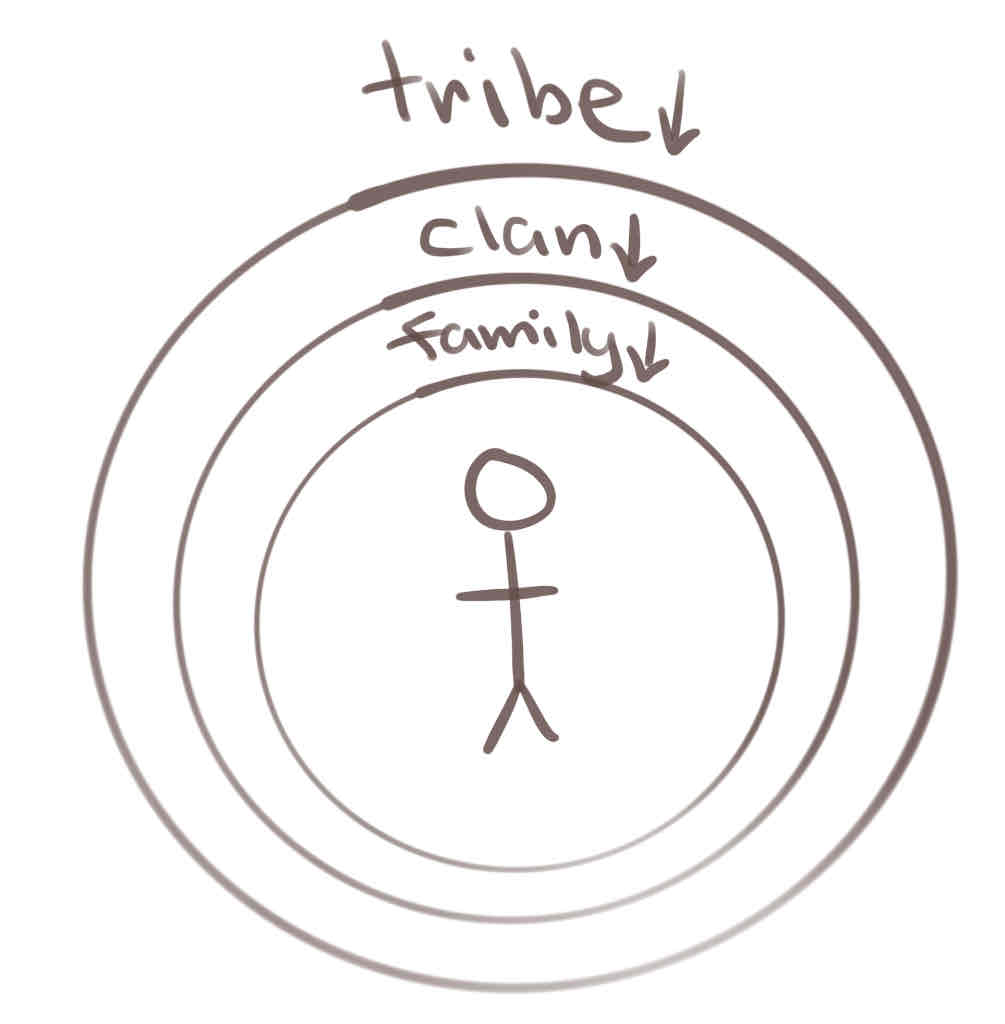Ghana/Mali Study Guide
1/26
There's no tags or description
Looks like no tags are added yet.
Name | Mastery | Learn | Test | Matching | Spaced |
|---|
No study sessions yet.
27 Terms
kinship ties
societies’ main organizing principle
the connection among people by blood, marriage, adoption, etc.
family/clan/tribe
clan - kinship group with common ances.
tribe - group of clans with common ances.

causal chain for development of cities
better farm tools: more land can be cleared + cultivated more efficiently
—> food surplus
—> people can specialize in a trade
—> village trade food/specialized goods for others
—> successful villages become cities
roles of Ghana’s king (3)
head of the army
final decision maker in matters of justice
religious leader
structure of Ghana’s army (3)
regular army: kept borders secure, maintained peace throughout empire
reserve forces: every man in the empire was required to have military training for this
bodyguards, escorts, advisors
sources of Ghanaian king’s wealth
tax collection
all gold nuggets must be given to the king*
*people could keep gold dust
matrilineal descent (succession)
succession is based on women’s bloodlines
- while this occurred, women in W. Afr. had more power than in most other civilizations at the time
patrilineal descent
succession is based on the bloodlines of men
causes for growth of trans-Saharan trade
taxes - traders paid large taxes when passing through Ghana
location - Ghana was located between 2 places that wanted to trade
reason’s for salt’s value
salt is an essential part of our bodies
people in hot climates (such as W. Afr.) sweat a lot and lose salt
therefore, salt was valuable because people craved salt
silent barter
a trading system used in ancient Africa
- salt was in the Sahara, gold mines were in Wangara
benefits
- people who spoke different languages could trade
- Wangarans could conceal the location of their gold mines
slave trade
free men could not be enslaved + those faithful to foreign religious could live as protected people (dhimmis) if they paid a special tax
- sources of slaves: conquest, tributes, purchase, raiding (mostly during Ottoman Empire)
- dir. of travel: Sahara —> Morocco + Tunisia, Chad —> Libya, Nile —> East Afr., coast of East Afr. —> Persian Gulf
myth of King Sundiata
Sundiata was forced out of Mali as a child & a hunter predicts his return
key differences between Ghana & Mali
Mali has access to coast + borders & more gold mines
large, full time army (protected trade)
relocated capital = less vulnerability to invaders + more land
Sundiata’s successor was first to make haij to Mecca
opened direct trade campaigns
griots
a poet-musician who performs music & tells stories to entertain people
- griots also taught people about historical events + genealogies
federation
a union of self-gov. regions which are joined together under a central gov.
- Sundiata org. Mali as a federation
dictatorship
a form of gov. in which a singular leader holds power
- ex. North Korea, Kim Jong Yun
relationship between Mali’s emperor & smaller kingdoms/tribes
Mali’s emperor (Sundiata) united several smaller tribes [federation]
changes caused by Islam’s rise in Mali
Africans kept their own culture & adapted to Islam
- many W. Afrs. learned Arabic (to study the Quran)
- began praying to God in Arabic, built temples…but also worshipped their ances.
role of Mali’s army
large, full-time army protected trade
Mansa Musa
devout Muslim, wealthiest man in the world, first Afr. to make haij to Mecca
impact’s of Mansa Musa’s pilgrimage in 1324
rest of world thought Afr. was a land of gold, land of wealthy kings, and more connected to rest of world than originally thought
West African oral traditions
for centuries, the beliefs, values, & knowledge of W. Afr. were passed down orally
- griots played a big part in this
Sahel
zone of semi-desert w/ short grasses, small bushes & some trees that was located between the Sahara and south
reasons for collapse of ancient Ghana (4)
started declining in 300 BCE due to Almoravid invasions
drought (CLIMATE CHANGE) —> population growth
new trade routes opened (less usage of Ghana trade route)
growing Mali empire
Sundaita’s army + raids
Al Bakri
a 10th century geographer who wrote much of what we now about W. Afr. history
Ibn Battuta
Moroccan Muslim, traveled around the known world + wrote much of what we know about Mali